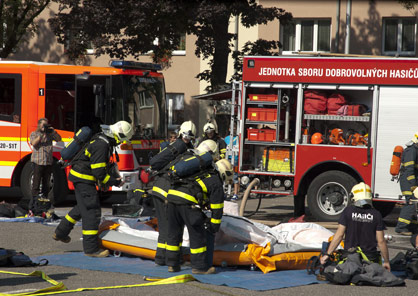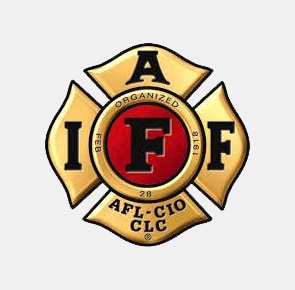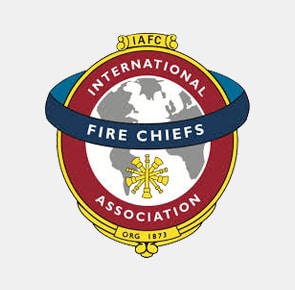Get Matched With Fire Science Programs
What Does a Career in Fire Science Entail?
A career in this field has a broad set of options that include fire services such as firefighting, fire and emergency services, fire prevention, fire protection, crisis management, public safety, and public education on fire safety issues. This field involves public and private organizations that have many important functions including fire and emergency services policy management, people management, training, and education. While the field goes beyond just firefighting, the core of it does revolve around fire services providing fire prevention, fire protection, and fire safety. Luckily, despite the hands-on nature of firefighting in general, this degree can be earned fully online for those who are looking for flexible education. Online options allow you to take courses at your pace and keep working.
Fire service or science degree programs take into account the changes in technology, advances in knowledge, and the evolving needs of society. Homeland security and emergency management have also grown to have a more significant place in fire services education. Climate change and the intensifying weather effects have also raised the profile of fire suppression and fire safety technology, wildfire firefighting, and fire detection. Societal needs have added importance to combining firefighter training with emergency response.

Components of A Successful Career In Fire Science
A career in this field has great opportunities and a favorable position to serve the public by improving public safety, but there are some skills you will need to have.
Communications
Careers in this area typically involve communications both in written and oral presentations. Fire safety involves communicating with fire science colleagues and the general public. Part of communications is learning the latest digital technology, including online engagement.
Public Service
Fire science degrees earned at a university are designed to prepare a degree program graduate to promote public safety, work at or run a fire department, etc. Fire and other destructive forces can disrupt communities and threaten community well-being as well as being dangerous to individuals and industry.
Flexibility
Fire science technology and innovation in firefighting offers current students new challenges and provides a number of new tools for success. Innovations can change the ways in which we conduct fire prevention and suppression as well fire and emergency services. For example, drone technology has introduced new means of search, rescue, viewing, and the opportunity to measure fires on site and hazardous zones across the U.S. This is a technology that has flowered into fire service operation within the past 5-10 years.
Physical Stamina
Firefighting in nearly every form requires physical endurance and emotional strength. Fire academy training has physical requirements and demands in its curriculum that resemble and prepare you for the physical stresses of firefighting. You do not have the option to skip these because it is important that you be able to do the physical work.
Education
Work experience can lead to a higher salary and greater responsibility in this field. However, many fields require specific training and education, such as a Bachelor of Science in Fire and Emergency Services. Some states and local governments require EMT training and certification for firefighters as well. Education in the form of an online or on-campus associate degree, bachelor’s degree, or master’s degree program can add job and career options. As technology and information advance, higher education is a stepping-stone for leadership in the field of fire science. You can select a degree level offered by your university that works for you. Admission may have specific requirements as this is an applied science, but each university with fire science programs is different.
Compare Popular Online Fire Science Programs
How to Earn an Online Fire Science Degree
You will need to have a high school diploma or GED to apply to an online associate or bachelor’s degree program in fire science. On top of that, schools might require you to achieve a certain score on the ACT or SAT in order to attend. These are standardized tests which will show them that you are ready for the rigor of a higher education program. Always check with any schools you are interested in to make sure you know what their requirements are before applying. It won’t do you any good to send in your application, application fee, transcripts, and test scores if they also require a letter(s) of recommendation.
Typical Fire Science Degree Requirements
An online associate degree is a 60 hour online or in-person degree that divides coursework equally between general education courses and fire science related studies. General coursework includes English, science, writing, and speech. Fire science degree coursework helps you master the fundamental principles in causes of fire; fire suppression; emergency procedures; and the basics of city, rural, forest, and wildlands firefighting.
Find Your Online Fire Science Program
An online Bachelor of Science in fire science is a 120-credit hour in-person or online degree, typically completed in four years. You can complete a bachelor’s degree with credits from an associate degree from an accredited school or state university as well as the courses you take during those 4 years. Bachelor’s programs can offer specialization and concentrations in a particular subject.
An online master’s fire science degree is a level of education that can lead to leadership positions in the field. In order to begin an online masters, you must have completed a bachelor’s in the field of fire science or a related field, first.
Typical Fire Science License and Certifications Needed
Fire science careers do not require licenses, with the exception of emergency medical response sectors, which require state certification and licensure. However, there are many helpful voluntary certifications that require study and testing such as EMT certification, Paramedic certification, and fire investigator training certification. When confirmed, these certifications can amplify an applicant’s qualifications and provide competitive advantages for jobs and career placements. Online courses of study are relatively new for these certifications, though some of them are offered.
Academic Standards for Online Fire Science

Students should carefully identify the school’s regional accreditation. Accreditation is vital to education financing, as many scholarships and loan programs require attendance at an accredited institution. The US Department of Education requires accreditation for schools that participate in the federal student loan programs.
Exam/Experience Needed for Fire Science
Fire and police agencies typically require attendance at special schools or training academies. These academies test recruits for physical standards such as strength and endurance, and they require written examinations. Persons that must possess an EMT credential for CPR and other critical functions require exams and licensing.
Experience is the primary means for qualifying for fire science jobs and entering careers. Education is gaining a more prominent place due in part to the efforts of professional associations and the FEMA education functions. Education also helps graduates adapt to computerization and innovation in fire science settings.
Associate Degree in Fire Science Online
Students seeking online or traditional education in the field of fire science have several options to advance their careers. The shortest path is the two-year associate degree. While this degree does not support a concentration, it does permit student selection of a minor and electives within the 30-hour framework for fire science and related courses. Students typically complete this degree in two or three years.
Sample Coursework for an Online Associate in Fire Science:
- Terrorism Management
- Hazardous Materials Awareness
- Crisis Decision-Making
- Fire Protection and Suppression
- Introduction to Emergency Services
Cost Range for Online Associate Degree in Fire Science:
Public, two-year schools’ average tuition range is $3,500 per year. The private, two-year schools’ average tuition range is $14,500 per year.
Bachelor’s Degree in Fire Science Online
The online bachelor’s degree in fire science offers a core of science and analytical coursework with a specialization in fire technology and firefighting. Elective areas reflect the broad role of fire science today including hazardous materials, emergency medical response, forest fire suppression, and wildfire control.
Sample Coursework for an Online Bachelor’s Degree in Fire Science:
- Fire and Emergency Administration
- Fire Investigation
- Human Resource Management in Fire Services
- Internship, Cooperative, Applied Education
- Laws and Regulations for Fire Arson
Concentrations for an online Bachelor’s Degree in Fire Science:
Emergency Response Management, Fire Technology, Fire and Arson Investigation
Cost Range for an online Bachelor’s Degree in Fire Science:
The 2017-2018 range of total tuition and expenses for a bachelor’s degree in Fire science was about $20,000 per year for public, in-state students to $36,500 for public, out-of-state students. The total estimated cost range was $46,950 for private school students.
Master’s Degree in Fire Science Online
The online master’s degree in fire science can establish the degree holder as a leader in the field and open mid to senior level career paths. The master’s degree also can qualify the holder for roles in fire science research and college level education.
Sample Coursework for an Online Master’s Degree in Fire Science:
- Advanced Crisis Management
- Advanced Fire Science
- Emergency Services Administration
- Homeland Security
- Crisis Management
- Fire Protection Engineering
Concentrations for an online Master’s Degree in Fire Science:
Emergency Management or Forest and Wildfire Management
Cost Range for a Master’s Degree in Fire Science:
The total costs of tuition and living expenses for master’s students at public colleges were around $18,690 and they were approximately $41,500 at private schools.
Earning Potential for Fire Science Degree Fields and Occupations
Overall there is a strong correlation between education and median annual salary in the US and most western nations. Employees with associate degrees earn more on average than high school graduates. A similar ratio exists as one rises to bachelor’s, master’s, and doctoral levels.
Find Online Fire Science Schools
In the fire science field, education matters for salaries and career opportunities. However, experience combined with education offers a substantially better prospect than education alone. Many well-conceived fire science curricula include hands-on experience as part of the plan of study. The list below reflect the overall impact of education on annual salary.
| Secondary Education | $51,500 |
|---|---|
| Associate degree | $57,100 |
| Bachelor’s Degree | $79,800 |
| Master’s Degree | $87,700 |
| Research Doctorate | $94,100 |
Salary Ranges
| Associates Salary Range | $38,370 - $47,160 |
|---|---|
| Bachelors Salary Range | $41,330 – $57,635 |
| Masters Salary Range | $73,000 - $80,000 |
Fire Science Salaries by Occupation
Fire science applications cover a wide range of occupations, and they go beyond traditional firefighters assigned to local fire departments. Fire science involves new technology and innovations, as information and scientific advances add new techniques, equipment, and methods for discovering information about fires and their causes.
The occupations that accept an associate degree usually require completion of exams, training, and graduation from a fire academy. Associate level degrees can be adequate for entry-level firefighter and fire safety positions. Bachelor’s degrees open a wider range of jobs and career options. When combined with hands-on experience, the bachelor’s degree can help graduates advance in investigations, administration, management, and technical positions. The master’s degree can reduce the need to show experience and open doors to mid and upper-level leadership positions.
Fire Science Occupations
Firefighter
The firefighter occupation includes typical academy trained firefighters, volunteers, and those with particular firefighting roles, such as those who assist with wildfires and forest fires. Firefighters responsibilities include fires and similar hazards. They must also maintain their equipment and keep a high level of readiness. They sometimes perform important public education work such as visiting schools to teach fire safety to children.
Firefighter-paramedic
The firefighter-paramedic combines firefighting training with emergency first aid and on-site medical treatment. This combination is particularly valuable in areas that place life-saving and resuscitation equipment on fire trucks. This dual role adds to the emergency medical response capacity for urgent medical situations as well as fires. The paramedic training usually requires certification from a CAAHEP accredited school or program.
Fire Inspector
The fire inspector uses expertise and science knowledge to detect hazards and dangerous conditions. Inspectors enforce standards contained in fire codes and other safety regulations. In large cities or organizations, they can focus on subject areas like new construction, flammable liquids, and chemical storage. Fire inspectors must communicate in writing and in oral presentations to convey and defend findings and promote safety.
Fire Chief
The fire chief holds a managerial position that administers a fire department. It is a leadership role that involves working with government leaders, the media, and the public, as well as the fire department workforce. Their responsibilities include planning and budgeting, and assessing the readiness of personnel, facilities, and equipment. Chiefs oversee training and continuing education to keep the firefighting force up to date on practices and innovations. Chiefs also lead on the scene of fires and large-scale events to coordinate the elements of fire and medical response.
Fire Investigator
The fire investigator typically undertakes to determine the cause of an event or condition. Fire investigators work at scenes to recover evidence and uncover facts to support a recommendation. They must be comfortable with investigative tools and techniques. They must be able to interview witnesses and convey their findings in written and oral presentations.
| Occupation | Entry Level Median Annual Salary | Mid-Career Median Annual Salary | Late Career Median Annual Salary |
|---|---|---|---|
| Firefighter | $41,400 | $48,500 | $71,600 |
| Fire Inspector | $51,000 | $54,000 | $54,200 |
| Fire Chief | $74,200 | $74,600 | $84,200 |
| Fire Investigator | $52,900 | $53,300 | $66,100 |
| Paramedic | $39,800 | $48,800 | $60,600 |
Important Questions to Ask (FAQ)
How long does it take to earn a Fire Science bachelor's online?
Online fire science degrees are much the same as on-campus degrees. They include the two-year associate degree, four-year bachelor’s degree, and one to two-year master’s degree program. Many online students attend part-time and in a manner consistent with their need to attend to work, business, family, or other obligations. Full-time and part-time online students can take three years for an associate degree and up to six years to complete a bachelor’s degree. There is an overall trend in college education; students routinely go beyond the standard completion dates in two and four-year settings.
How much does an online fire science bachelor’s degree cost?
When considering tuition and living expenses, the below-listed items describe the range of expected costs, such as tuition per credit hour, for a bachelor of science in fire and emergency services.
- Public, four-year schools average in-state tuition is $20,270 per year or about $81,000 for a bachelor’s degree completed on time.
- Public, four-year schools’ average out-of-state tuition range is $37,820 per year or about $156,000 for a bachelor’s degree completed on time.
- Private, four-year schools’ average tuition is about $47,500 per year or about $189,000 for a bachelor’s degree completed on time.
Does the school have the major(s) you’re considering?
When selecting a school, it is important to keep your long-term and career goals in mind. The best approach for most students is to align their choice of school to their career goals. This means being sure that the school offers the majors and concentrations that you need to get into your chosen career. Students should examine the lists of majors and the courses that support it.
In the field of fire science, students should also look at the experience of the faculty. In this field, hands-on experience matters a great deal, and training with real-world experience can set an applicant apart.
How many students graduate “on time,” in four years?
The current trend is towards longer completion times. The US Department of Education created a website called the CollegeScorecard.ed.gov to ensure transparency for students about college financing. Students should have easy access to information about the student experience at each college. The below-listed items describe graduation rates for public and private colleges.
- Four-year, private schools – 53% graduate in four years and 65% at the six-year mark
- Four-year, public schools – 35% graduate in four years and 58.6% at the six-year mark.
At the Department of Education College Scorecard, students can get specific information for each school under consideration.
What kind of accreditation does the online program hold? How is it regarded in the field?
The types of accreditation that students should know about are national and regional accreditation. Regional accreditation is the most widely accepted type, and these schools offer a high-quality education that meets the standards for an entire region. National accreditation can also work well, but students must check on the acceptance. They must make sure the school participates in the federal student loan and financial aid programs, because not all nationally accredited schools do. Students should also make sure that other schools will accept transfers of the credit hours earned.
Search Programs Offering Fire Science Majors
Software, Technology & Skills Needed
Fire science involves research, writing, and presentations of various kinds. In the field, students may have to use various tools, machines, and devices as required by circumstance. So, they’ll need to be flexible. While the list of possible fire science tools and machines is lengthy, students will find that their particular areas of focus have some essential tools, software, and devices.
Fire Science Scholarships
-
CSHEMA Scholarship
Amount: $3,000
Deadline: March 1The Campus Safety Health and Environmental Management Association (CSHEMA) offers a $3,000 award each year. Eligibility includes all undergraduate college students enrolled in majors that relate to safety such as fire protection and safety.
-
Motorola Solutions Foundation Public Safety Explorer Scholarship
Amount: $2,000 (5 awards)
Deadline: October 31The committee awards five $2,000 scholarships to Fire and EMS explorers studying in the field of public safety. Applicants must show that they are likely to complete their studies as well as involvement in community and citizenship activities.
-
The Pearl Mae Foundation Scholarship for Healthcare and First Responders
Amount: $2,500
Deadline: March 31The Pearl Mae foundation offers three scholarship programs for students pursuing careers in health care or first-responder fields. 2019 applications open January 1, 2019.
-
The Harry S. Truman Scholarship Program
Amount: $30,000
Deadline: February 5Eligible full-time college students in their third year at a four-year accredited institution will demonstrate leadership, communications skills, and intend to pursue a career in public service.
-
The Noble Scholarship
Amount: $5,000 per year (Up to $20,000)
Deadline: February 15The National Organization of Black Law Enforcement Executives (NOBLE) provides scholarships to graduating high school seniors committed to a career in law enforcement or criminal justice or a related position or field. Eligible scholars must have a 3.8 GPA or higher, need financial help, and have an acceptance at an accredited institution. Eligible majors include social sciences, technology, and forensic investigation.
Professional Fire Science Organizations
- IAFF
- NEMA
- NASF
- IAFC

IAFF
International Association of Firefighters(IAFF)
The IAFF is a member association representing more than 300,000 firefighters and paramedics in the US and Canada. The IAFF is an active advocacy group that urges increased resources for firefighting, better wages and working conditions for firefighters and emergency response personnel, and more progressive laws to protect lives and property. The IAFF is an excellent choice for students, and particularly for students interested in firefighting and emergency management careers.

NEMA
National Emergency Management Association (NEMA)
NEMA is a non-profit organization dedicated to improving public safety by enhanced preparation, planning, and research for mitigation and recovery from natural disasters, emergencies, and national security threats. NEMA advocates for laws and policies and urges adequate public and private resources to meet current levels of threat and risk. NEMA provides voluntary certifications in emergency management and related fire science fields. NEMA is an excellent choice for student membership; it has educational and networking resources that will benefit students pursuing careers in the fire sciences.

NASF
National Association of State Foresters (NASF)
The NASF began as an organization of state government officials and is now an advocate and voice of authority on forest management. The association places priority on forest fire prevention and mitigation including advances in firefighting techniques to control forest fires and wildfires. The association is an ideal affiliation for students interested in forest fire technology.

IAFC
International Association of Fire Chiefs (IAFC)
The IAFC represents policy and tactical leadership in the firefighting, emergency medical services, and emergency management communities. Executive level managers and decision-makers have an important role in shaping preparedness and response to the growing risks of fire damage. The association promotes leadership and best practices. This association benefits students that seek management and executive level careers in emergency management and fire science fields.
Choosing an Online Accredited College
Accreditation is important when selecting a fire science program. The value of a degree depends on whether employers and educational institutions accept it as high-quality education. Accreditation is an assurance that the school, its faculty, and educational resources meet the standards for leading schools in the entire multi-state region. Accredited programs get the widest audience among educators, employers, and other reviewers of academic achievement. The broad approval and acceptance of regional accreditation provides a wide range of potential jobs and career options.
Online vs. On-Campus vs. Hybrid
Students can choose whatever type of learning experience that fits their needs and preferences. They can choose to attend classes on campus, online, or in a mix of virtual and on-campus learning. There are advantages to each approach, and the test is whether it meets the student’s specific needs.
Online learning offers flexibility because it is asynchronous. Students do not need to gather at the same place and time, and each online fire science student can get access to the instruction at his or her convenience. Students can access online fire science degrees from home or anywhere they can get an internet connection. Online attendance permits employed students to continue work or running a business. Many people have family and other obligations that make on-campus attendance unworkable.
The hybrid approach gives the best of both online and on-campus attendance. Students may choose to take some classes with other students in the classroom or lecture hall setting. By balancing on-campus and online courses, students can maintain a favorable schedule.
On-campus classwork is the traditional way to attend school. For some students, it involves changing location and the added costs of housing, food, and local travel. On-campus attendance may be the more expensive method.
Frequently Asked Questions
What are the best states for firefighters?
The best state to work as a firefighter depends on a lot of factors. These include things such as the median wage in the state and the cost of living, the number of fire departments and open firefighting roles in the state, and the number of wildfires in the state because wildfires are the most dangerous type of fire to fight. So, the best states for firefighters include Illinois, Ohio, Indiana, Michigan, and Rhode Island. This list is based on a state’s FLARE score, so if the state you live in wasn’t listed here, feel free to look up its FLARE score yourself. This can help you decide if you want to focus on something else, like emergency management, or if you are interested in moving to a state with a better score, where you can make a decent living and have less risk of dealing with wildfires every year.
How to you choose a degree in fire science?
The first step to earning your degree is to choose which degree you want to earn. You could start with an associate degree and save on tuition before transferring to a bachelor’s. Or you could look for a 100% online program, in which you will learn everything you need without having to attend classes in person. However, there are some students who learn better through in-person or hands-on learning, and you should decide whether or not you think you would benefit from this type of learning before you choose a program or school to attend. No matter which type of program you choose, the most important thing to consider is accreditation. Accreditation will allow you to more easily transfer credits to a new program (such as between that associate degree and bachelor’s degree), gain access to federal student aid (funding of this type is not accessible for students who choose to attend unaccredited institutions), and access to better paid positions after you graduate.
Does the College Have Post-Graduate Job Placement Help & Assistance?
Colleges can boost employment and career options for graduates through job placement and recruitment programs. The programs can be simple job boards and places where employers can conduct interviews. Some schools have extensive systems that support national and local recruitment by leading employers including federal, state, and local governments.
The school is more than a building with teachers and classrooms; it is a unique community of alumni, supporters, strategic partners, donors, and affiliated stakeholders. When used, the school community can be a powerful engine for producing job referrals, career opportunities, and entrepreneurship. Students can take advantage of these resources by participation, networking, and affiliating with school-related organizations.
Why You Need to Consider How Rating/Accreditation Can Affect Your Salary?
The best salary and opportunities come when a degree has widespread respect and acceptance among employers. The school’s rating, accreditation, and reputation can affect job opportunities and salary. Benefits flow from the widest possible acceptance of the value of a degree. Employers will be more likely to pay graduates top dollar when they have high regard for the school and the fire science program. Fire science schools gain respect when they produce graduates that meet and exceed the expected level of performance. In the fire sciences, a program that exposes students to real-world experiences has an advantage.
In the fire science field, it may be necessary to look past the school’s rating and accreditation to the specific program. Fire science experience matters and programs that have built-in internships, collaborations, and hands-on projects will stand out. Programs that recognize the importance of practical experience serve students well when they are seeking early career opportunities.
